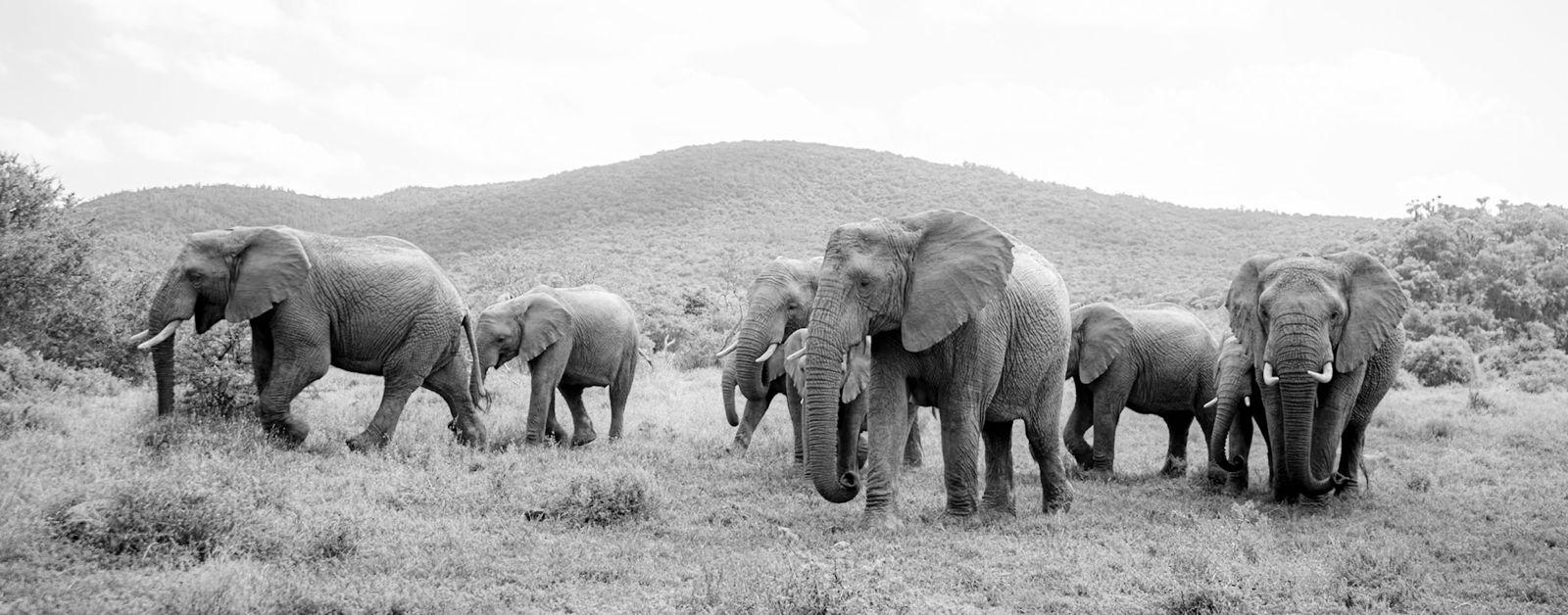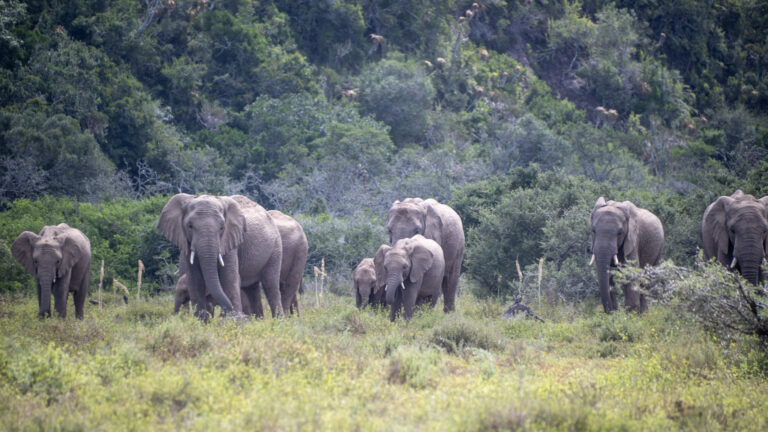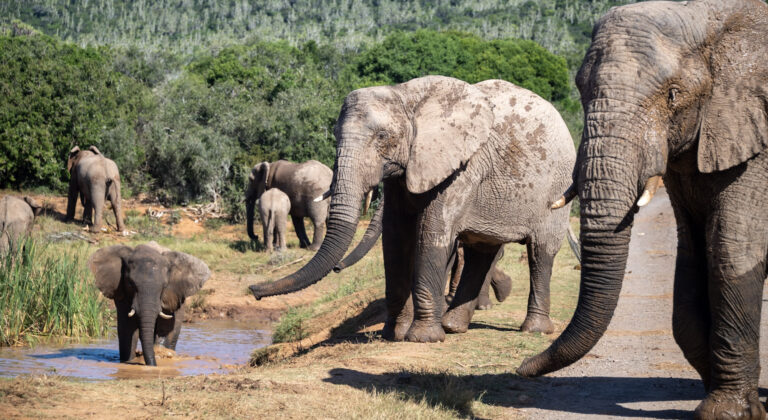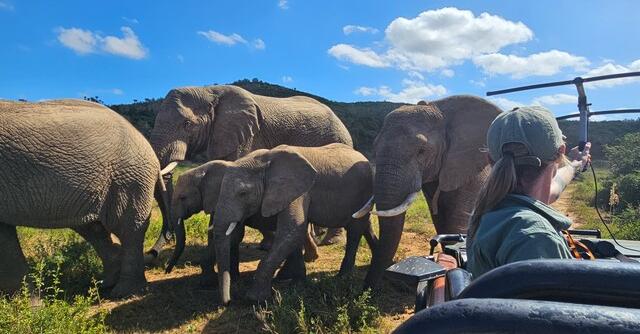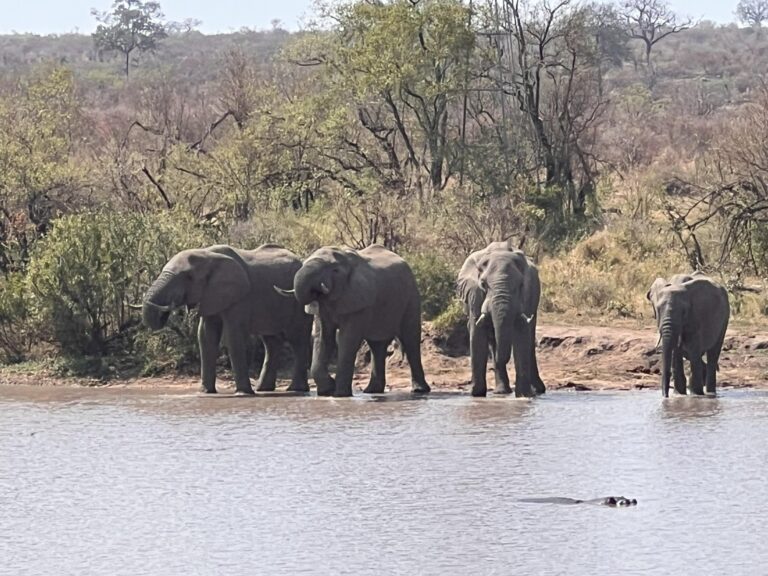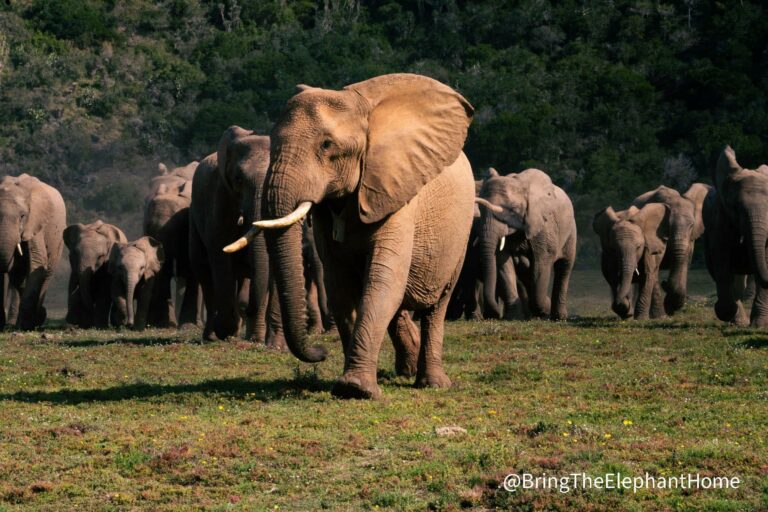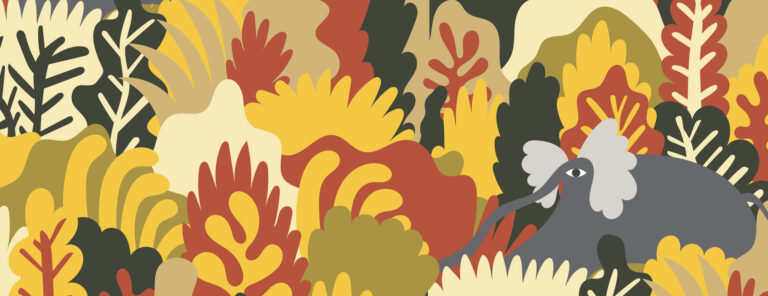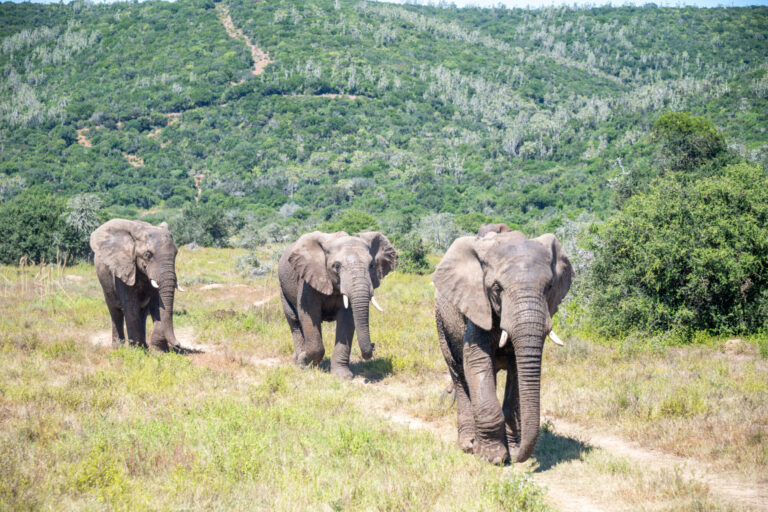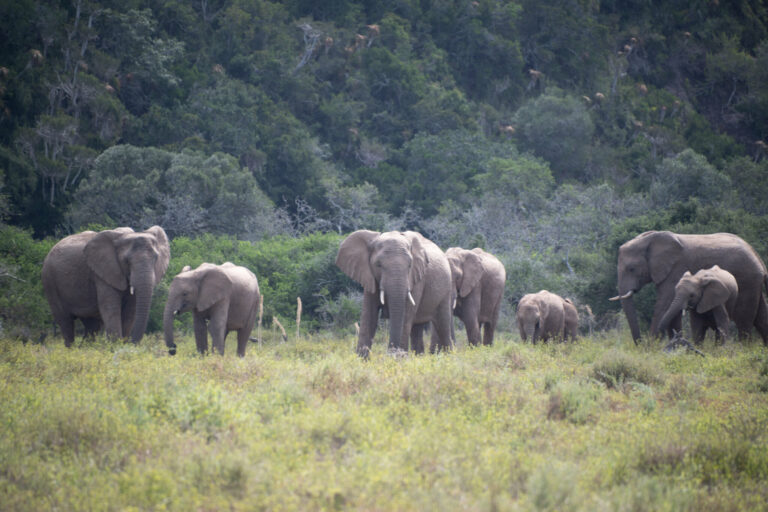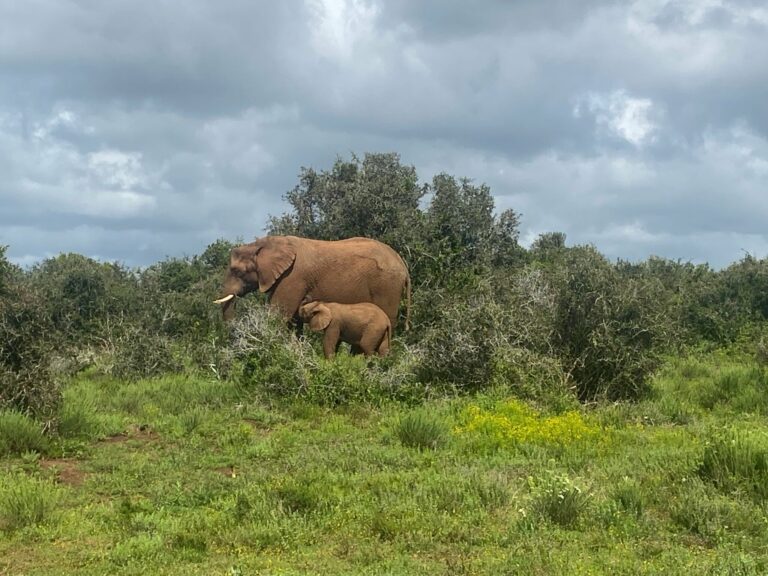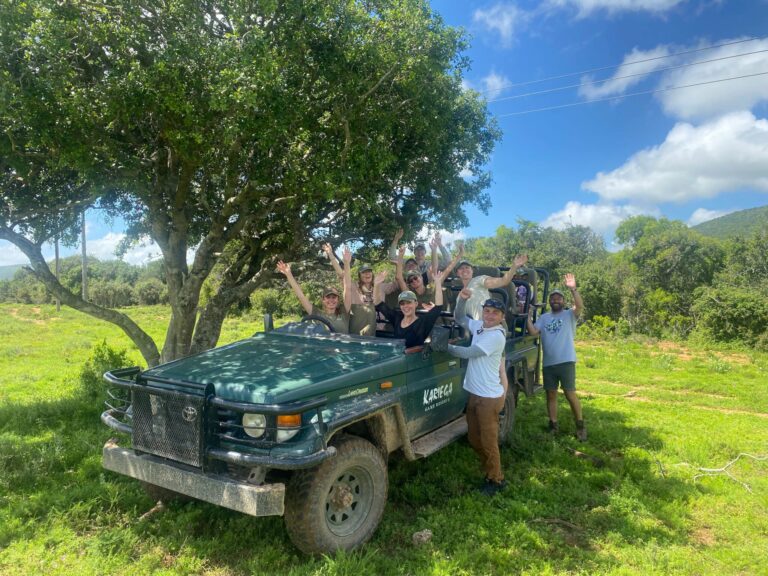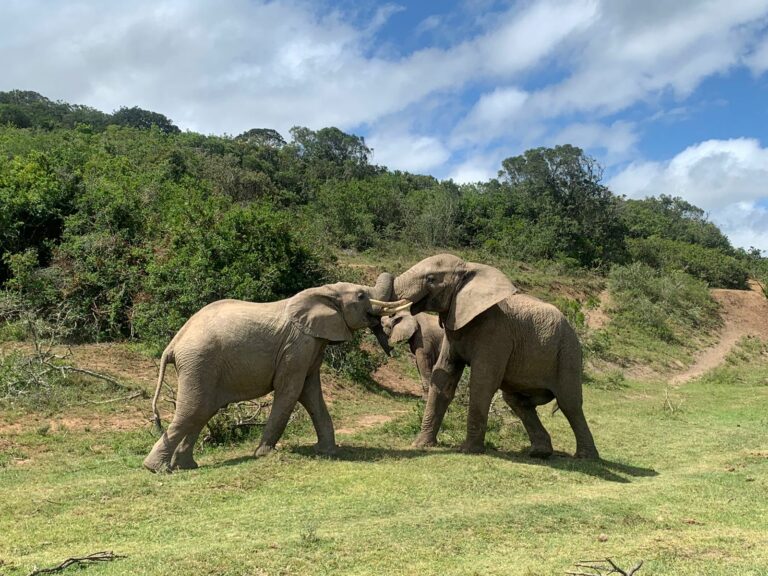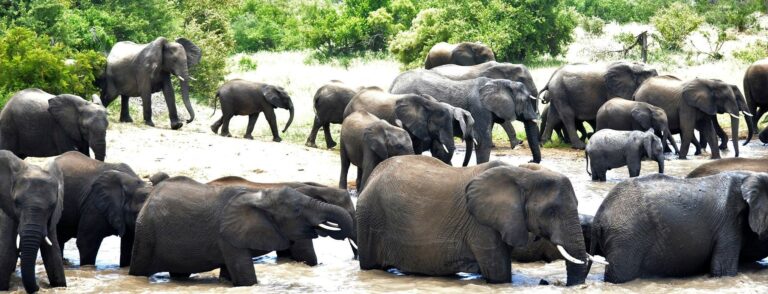In Africa, our work centers on elephant well-being and conservation, science-based research, governmental advocacy, and community integration. Through our Conservation Research Collaborative, we actively support elephant conservation across Southern Africa by training, supporting and advising research endeavours conducted by various entities.
- Our research and projects aim to advance understanding of elephant behavior, welfare, and habitat use to inform effective and compassionate management.
- We collaborate closely with scientists, rangers, and local communities to ensure that conservation solutions are inclusive, evidence-based, and culturally grounded.
- We are also deeply engaged in policy dialogue and advocacy, contributing to national and regional strategies that promote long-term protection of elephants and their ecosystems.
- Our involvement in the development of an Elephant Rewilding Reserve supports the restoration of migration routes and habitat connectivity, while prioritizing elephant welfare and population sustainability.
- At the heart of our approach is a commitment to ecological resilience, cultural respect, and innovative solutions that enable elephants to thrive in secure, connected landscapes.
